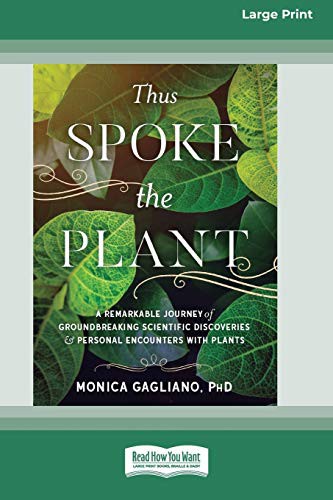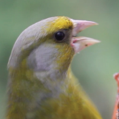Fionnáin reviewed Thus Spoke the Plant by Monica Gagliano
From firm roots to frail branches
3 stars
Monica Gagliano has written a unique book. It is a memoir of a kind describing her experience of learning from the voices of various plants: Socoba (Bellaco-caspi), Tobacco, Corn, Ayahuasca and others. The voices tell stories and help direct her scientific research.
The first half of the book is brilliant. It is fluid and calm, poetic and playful. Despite Gagliano's blinkered view of her own privilege (she writes as if everyone has the freedom to travel freely around the world and work in universities), it reads wonderfully and creatively and she constructs a philosophy that is like an intersection between Deleuze & Guattari and Donna Haraway, although not calling on either. Instead she calls on various plants, supported in her conversations by humans who understand their world. The plants suggest experiments that she should follow, and she listens. This theory and process is magnificent, adventurous and wild, and very brave. …
Monica Gagliano has written a unique book. It is a memoir of a kind describing her experience of learning from the voices of various plants: Socoba (Bellaco-caspi), Tobacco, Corn, Ayahuasca and others. The voices tell stories and help direct her scientific research.
The first half of the book is brilliant. It is fluid and calm, poetic and playful. Despite Gagliano's blinkered view of her own privilege (she writes as if everyone has the freedom to travel freely around the world and work in universities), it reads wonderfully and creatively and she constructs a philosophy that is like an intersection between Deleuze & Guattari and Donna Haraway, although not calling on either. Instead she calls on various plants, supported in her conversations by humans who understand their world. The plants suggest experiments that she should follow, and she listens. This theory and process is magnificent, adventurous and wild, and very brave.
However, when the experiments begin, they are not particularly nuanced and we only see the ones that support the claims she is making. While the ideas are terrific and the results are exciting, there is a lack of scientific rigour. For example, an experiment works on peas in isolation, showing how they can be trained to respond to stimuli like Pavolv's dogs, but there is no follow-on to see if this might work in other conditions. It probably would, and I would love to believe it, but claiming success in such experiments only repeats the mistakes that Gagliano criticises in science, where there is a blindness to other results, particularly those you do not want to see. Further to this, there is a lot of anger against the academic world on the later pages (sometimes justified, at other times harsh) and repeated claims to have 'discovered' truths that have already been presented by many theorists and artists over the past few hundred years (and likely much longer).
In the end, the plants speak, and Gagliano listens, but it feels like if she had listened to some more humans she might have an even broader story to tell. Maybe someone else will take on this mantle, and hopefully will be inspired by some of the wonderful work that is presented here.

